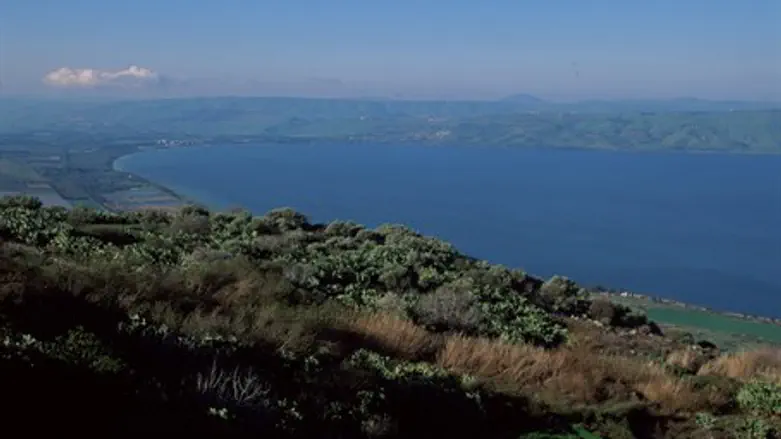
The Water Authority has announced that the sparse rainfall over the past three winters in northern Israel has left its mark on the country's largest reservoir – the Kineret (Sea of Galilee). As a result, the available water supply from the Kineret is the lowest it has ever been since measuring began in 1926.
For the first time since 2008, the water level of the Kineret actually dropped during the month of December. However, it quickly made up 4 centimeters of height at the beginning of January, following last week's snow and heavy rains.
The Kineret now stands at precisely 213 meters below sea level. This height is exactly the "lower Red Line," below which the government has determined that it is not recommended to draw water from the Kineret.
Some ten years ago, the government also designated a Black Line – 215 meters below sea level, which by law cannot be breached. In the year 2001, the Kineret came within 13 centimeters of the Black Line, descending to its lowest-ever recorded level: minus 214.87 meters. It was then that the government wisely decided to desalinate 400 million cubic meters of water each year.
Though this decision was slow to be implemented, desalination in Israel has now taken off in a major way. Since 2005, Israel has opened five desalination plants, and over 40% of Israel's drinking-quality water now comes from desalination.
The maximal level of the Kineret, at which the dam in the southern part of the sea is opened to prevent flooding, is 208.8 meters below sea level. Thus, over 4 meters of water are currently lacking from the Sea of Galilee. Every ten centimeters of height in the Kineret, the source of nearly a quarter of Israel's water, represent some 17 million cubic meters of water, close to 3.5 times Israel's national consumption.
According to current plans, the amount of water to be drawn from the Kineret to the National Water Carrier this year will be the lowest ever.
Other underground water supplies used for Israel's water have actually increased so far this winter.